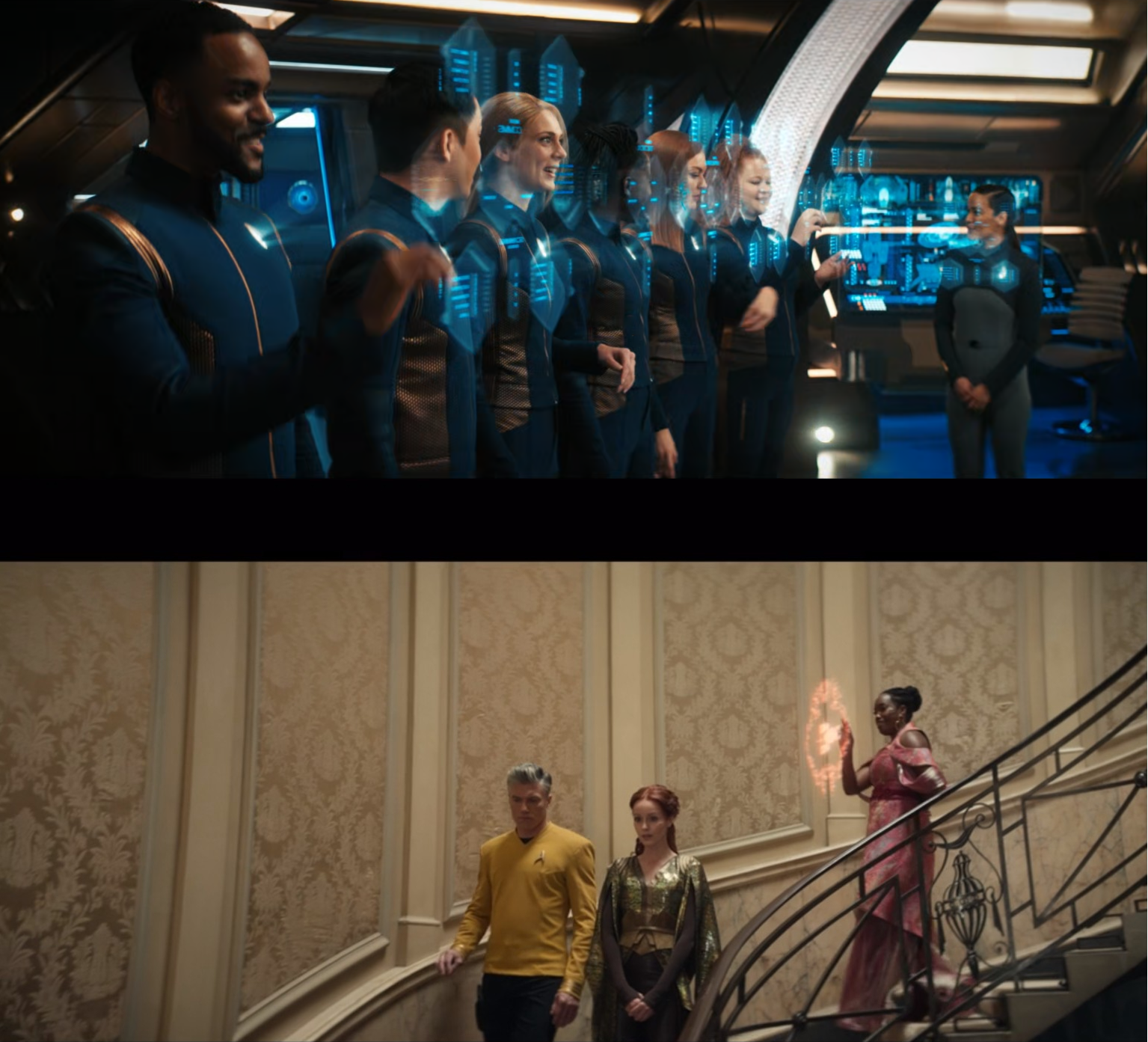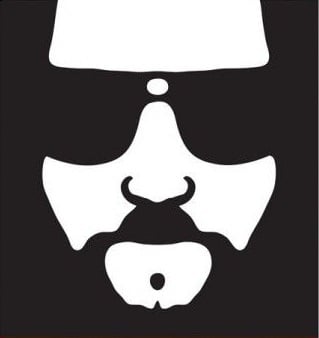Honestly if I could just print up a new tablet instantly and without cost, I would have half a dozen around me when I am deep into a research fugue.
Being able to quickly and easily flip between books or articles (or even different sections of the same book) while at the same time keeping the existing information up on a screen that I can directly reference is great.
Why are there 4 browsers split between 2 monitors with dozens of tabs a piece?

I’m starting to feel limited at two monitors and I think I have a problem. I don’t even know what I’d use #3 for yet, I just would like to have options.
If nothing else, remember to stay hydrated and wash your hands.
I have a 42inch curved 4K main monitor.
It’s fucking huge.
Still have 2 27 inch ones in portrait to each side for documentation and browsing.
That sounds amazing. Honest question: how much more screen would it take before a full VR setup would seem more practical? Not everyone has a battlestation like this, and I’m genuinely curious where the line is. Thank you.
Rather have 4x 21" screens though.
Much easier to organise all the different windows that way.
Both Windows and Linux do a rather fantastic job at restoring your desktop to its previous state if you ever reboot.
And in Windows, if you use Powertoys, the options to do so grow even more.
I can see it used for that sort of thing, but they pass them around like they’re post-it notes.
They apparently put the human element back into communications by having a third party physically carry the message like pre-screen eras. For reasons, you see.
deleted by creator
Fool me once, shame on you. Fool me 34985938479 times…
Engineering - Apple iPad
Security - GNU/Hurd Mobile Flatscreen
Medical - MS Surface TNG
10 Front - Samsung FuchsiaPad
And none of them are interoperable. Did you really think they would solve that in the future?
Considering that Star Trek’s Earth is a communist utopia, I would expect so, yes.
I recently read an interesting argument that the federation isn’t in fact communist, but basically something beyond our current economic concepts.
We have:
- explicit self determination, individualism and self fulfillment are held in the highest regard, so much so that it is considered the objective of life to find personal fulfillment and in doing so, giving back to society
- post scarcity economy, everyone can have any material need fulfilled at any time by virtue of replicators. Though many goods and commodities are still produced in the traditional way to provide a better quality product (how is this limited amount allocated?)
- Money is not used internally, but the federation has no objection to using it for commerce with other cultures. There is also indication for power tied credit system that federation citizens are subject to, for example for complex replication and transport
- being a merchant or trader, or rather generally seeking profit and material wealth are, while considered outdated by most, not offensive or even illegal within the federation. There is plenty of evidence for private enterprise, for example the publishing studio that distributes the doctor’s holo novel in VOY
And many more, even contradictory to our current day minds, aspects that put the federation system and ideology someplace further than our current concepts.
It has always seemed to me that their society is what you’d get if the United States didn’t have billionaires hoarding 90% of the wealth. Allocate all of those resources fairly, reduce the population, add in some free electricity and replicators, and you have TNG.
I’m sorry, what?
post-scarcity, not communist.
They don’t have money, and other than Starfleet and The UFP council, they don’t seem to have government. I assume that someone is still administering France, since we do see France still exists, but they don’t refer to The US, because I don’t think the US survived to the 24th century. There’s an argument to be made that they’re mostly communist.
Why would each area of the ship need to use a different brand or model of device?
That’s sure not how military ships work now.
They all run Syncthing and KDE Connect. What more interoperability you could expect is probably about things those devices won’t even allow you to do.
Like all predictions about future technology, Star Trek was both right and way off.
Padds are almost used like portable storage devices. Want to give someone a book? Load it onto a padd for them.
But who wants to deal with searching through the UI for pertinent info when you can have several PADDs each attuned to a specific set of data?
I’m more amused by Jake writing his stories on a PADD with a stylus, but you see it and it’s all printed text.
I get it. I hate typing on mobile devices.
Yeah, but you never see the handwriting part. Like he’s writing on it and it’s doing handwriting to text, but the handwriting is not on the screen, which just seems like a bad interface.
This is a thing that existed even when DS9 was being filmed; taking handwriting and converting it to printed fonts? It wasn’t as on the fly IRL, but by the 24th century I’m sure it would be perfect where you could write by hand and instantly have it transformed into print.
The Apple MessagePad did it on-the-fly, by the word. Problem was, it was terrible. It was supposed to learn your handwriting and get better over time, but it didn’t. The next to try was Palm, and they mostly got it with their special shorthand glyphs. I had both, and was much happier with my PalmPilots.
You’d think they would have ironed out the kinks after 400 year
Yes, but you can see what you’re writing on real devices.

What if a piece of consumer tech from the mid 90s helped explain? The Apple Newton brought offline handwriting recognition into the public perception and it was thought of as the Next Big Thing like AI or crypto. Inputs were all the rage in the 90s and handwriting recognition fell out of favor when speech to text software was released in the later half of the 90s.
Trek writers were trying to be forward thinking, and maybe there will be a handwriting resurgence that sees a maturation of the OCR tech, but for now it was a nice quiet piece of trivia that will be lost to time.
I had a Newton. You could see what you were writing.
I mean, Samsung tablets come with handwriting detection. I immediately turned it off of on mine because it expects since kind of cursive that I don’t use but it’s there.
I consider Palm’s Graffiti input system superior – sure, you had to learn the alphabet but every palmtop came with a cheat sheet and one you had it down it was pretty damn quick to write with.
In the future, kids learn how to hand-write text that looks printed.
Production reason: without a stylus it looks like he’s reading, not writing. Without one, dialogue like “I’m writing a book” would come across as lying, which can completely change a scene for the worse.
In-universe lore reason: Jake is a romantic and probably feels that the more tactile approach is better for his creative process.
I mean, we’ve still got authors typing up manuscripts on mechanical typewriters and GRRM writing ASOIAF on a DOS computer. Jake wanting to use a pen is possibly one of the least weird things about Trek tech.
They can even have their own special UI! The way they talk about reconfiguring panels makes it seem like you can build your own UI on the fly, especially the time Worf yelled at a dude who put the con controls in the engine room of the defiant and didn’t use the standard layout.
My headcanon is that some of the PADDs are 1-time use with read only memory that can’t have the data loaded or transferred off it. A secure way of passing information.
Just chuck them into a matter recycler when finished. No messy piles of old PADDs. Unless you’re Sloan from Section 31.

I know this is in his head, but in all likelihood how he really kept his notes.
Reminds me of the paper printouts in the very earliest TOS episodes. Like, what do you do when you run out of paper in deep space? And do you really have the storage for 5 years worth of computer printouts? Logistically, even an etch-a-sketch makes more sense.
That is one way to not get hacked I suppose
Yeah, it’s commonly thought to have something to do with security. Similar to chain of custody for criminal evidence.
Engineering compiles a department report for the captain. The Shift Lead puts the data on a PADD, then gives that PADD to the Chief Engineer. The Chief Engineer signs the data with their command code and notes that it is PADD-1217. That data then becomes locked to that PADD. Someone from Engineering is assigned to take PADD-1217 to the bridge and hand deliver it to the Captain. The Captain receives the PADD, reviews the report, confirms that they are holding PADD-1217, and signs the report with their command code. Someone from Engineering is sent to retrieve the PADD, and re-deliver it to the Chief Engineer. The Chief Engineer confirms the PADD was read and signed by the Captain, confirms it is PADD-1217, and transfers the signed data to the computer core to be logged and archived. The Chief Engineer then confirms all data on the PADD has been transferred and erased, then stores the PADD until it is needed again.
This is why it’s common to see a pile of PADDs on the Captain’s desk. Each department is sending their own secure report on their own PADD.
It’s very amazing to me that we have better tablets today than they had on TNG, yet we’re further from space exploration today than we were when TNG was being made.
Never forget Voyager, where Torres could invent a brand new method of transporter lock and implement it on-the-fly all through a console on the bridge, but even the bio-neural gel packs weren’t smart enough to get a power requisition down to the bottom decks without someone putting it into a padd and physically walking it down there.
Power requisitions need the Human touch. And human germs.
My desk has a desktop with two monitors, a laptop, an iPad, and a phone. I use each of them for different reasons throughout a day.
TBH the only reason I have so few devices laying around is because they’re expensive. If I lived in a post-scarcity society, I’d have a lot more tablets on my desk.
My desk has a desktop with two monitors, a laptop, an iPad, and a phone. TBH the only reason I have so few devices laying around is because they’re expensive.
so few
So few?
It made sense a few years ago, but come on, how many portable devices with large screens do we have now?
Plus if I could replicate 10 iPads so I could have a page open on each to make research easier, I’d do it. What’s better, having to switch between tabs or apps, or just grabbing a pad with the info ready to cross reference.
At least SNW and DISCO mildly touch on the subject with portable holo-displays.

deleted by creator
$0.02:
We used to get plenty done with much less screen area, so there’s isn’t really a driving need, per-se. There’s nothing wrong with that workflow, even today.
That said, more pixels does enable some useful possibilities. IMO, the major difference comes down to using your peripheral vision (which wasn’t possible before) and less background tasking. Both converge on less cognitive load since you don’t need a mental map of what’s in the background (everything is “foreground” now). Instead, you can scan your immediate environment (screen real-estate, physical devices, etc) to find what you want. And I think it’s ultimately a matter of taste: some people will find that overwhelming instead of helpful or useful.
deleted by creator
4:3 monitors were better than 16:9, objective fact, fight me
No argument from me. If nothing else, they were taller, which is better for many documents, web pages, etc.
No, I’m with you. I think it’s needless most of the time. People are arguing uses, but Star Trek really takes it to a needless level. I remember an episode of, I think, TNG where someone has to be trained and is given a big box of PADDs to read. Jake has a different PADD for everything he writes.
I have a two monitor system on my desktop and I do use all of that desktop space, but there’s a limit to how many screens I could see myself ever needing.
And really, you would think Starfleet would come up with something more efficient.

















